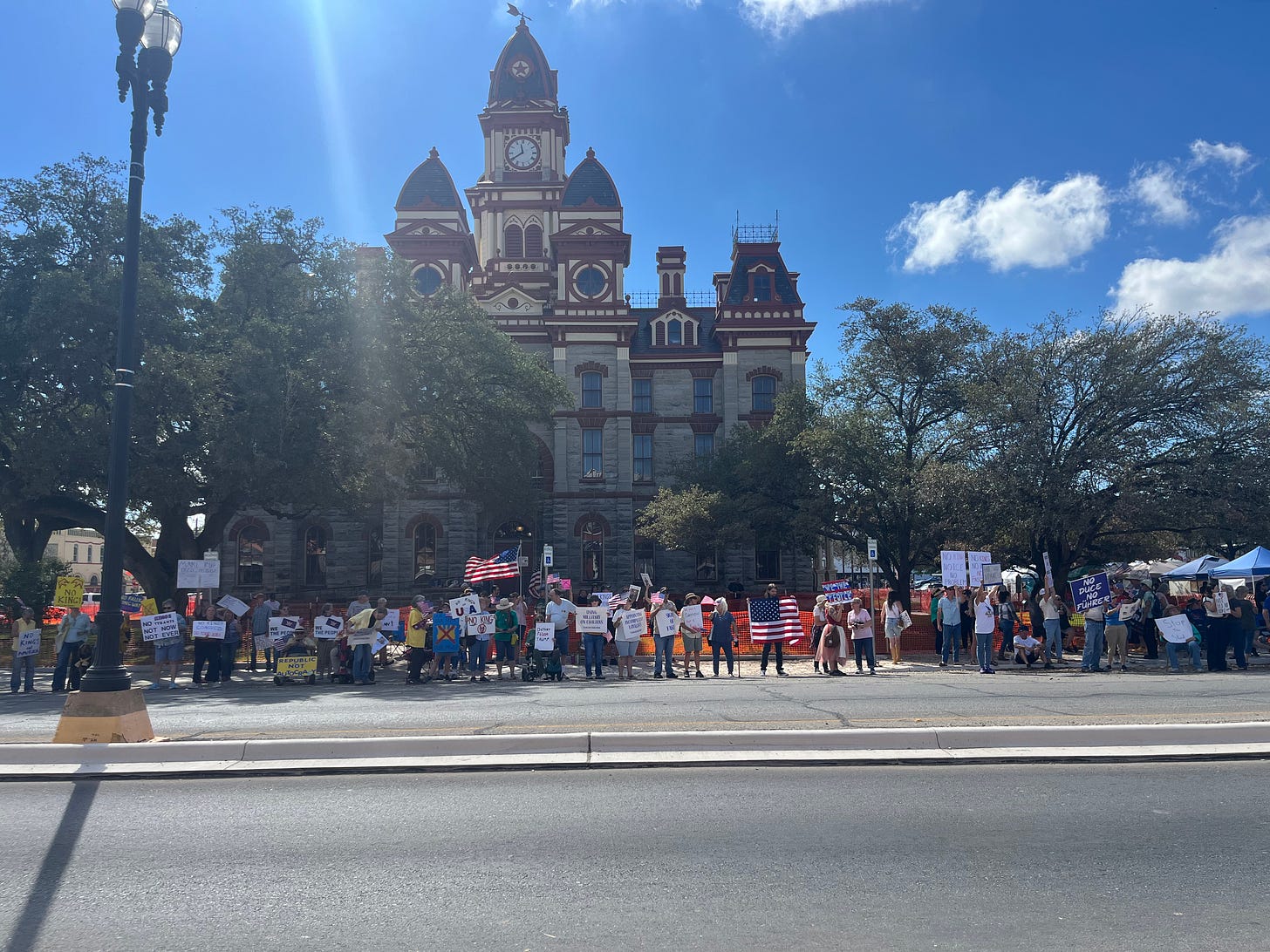The baby boomers' last sigh
Why do the elderly love to protest?
When I was a child, we had a certain idea of the elderly. Old women were called Ethel or Gladys and disapproved of things. Old men tinkered in their gardens and had fought in the war, but would never talk about it – and only after they died would you learn that they had taken out half a platoon at Monte Cassino.
In my teens I worked during the holidays at the gate of a private road, a job which essentially involved pressing a button to let cars in. My colleague was a Royal Navy veteran called Doug who had spent his early twenties on the high seas being shot at by Germans. He seemed to have had a great time, describing with enthusiasm taking down Luftwaffe fighters with the ship’s big guns. Even getting sunk somewhere on the way to Russia didn’t dampen his fond memories.
Occasionally we’d be visited by his contemporary, Shirley, who worked in one of the nearby offices, an authentic south Londoner from Lambeth who was fond of making sexual innuendos and smoked incessantly. Shirley had quite forthright views on immigration – she wasn’t a fan - and Doug had the typical opinions of someone of his social class who had reached middle age before the sexual revolution.
While they both had political views, they weren’t especially interested in, let alone obsessed by, politics. Doug would open the Daily Mail, make a quip about what the world has come to, and then go back to talking about other interests: DIY, gardening, grandchildren - literally anything but politics. The idea of seeing either of them at a political protest would have seemed absurd.
Old people are very different now, and instead of allotments, golf or even cruises, for many their preferred retirement activity seems to be protesting. This first became apparent soon after the referendum when pro-EU demonstrations started popping up; Remain voters are far younger than Leavers, reflecting a generational gap in voting, but the protests were notably full of old people. The environmental protest movement, likewise, attract loads of elderly, as do the demonstrations in favour of Palestine Action, many of whom were recently dragged away by police outside Parliament. If you attend any court where Gaza activists gather outside, especially if it’s during business hours, you will notice how old they invariably are.
The same seems true in the United States. In Lockhart, Texas, last Saturday I saw one of the countless No Kings protests taking place across the country, and the medium age was strikingly advanced. Quite a few were in wheelchairs. With the youthful energy of 2020 evaporated, this latest form of progressive politics feels far more geriatric.
Some see these events as more like a social gathering than a traditional demonstration. Brandon Warmke of Florida University argued that ‘these aren’t really protests in any serious sense of the term. They are fun, pre-Halloween, social outings for mostly middle-aged progressives and boomers who crave community and need to blow off some steam.’
This may be related to the issue of time constraints, or lack of them. People live much longer, and enjoy far longer retirement periods, which must be filled with something. Another theory is that it reflects the confidence of wealth, since people with higher levels of capital are more likely to be politically engaged. In Britain, while old people have traditionally had the highest rates of poverty, that has now reversed, with that cohort controlling half of the country’s wealth. In France, pensioners actually earn more than working-age people.



